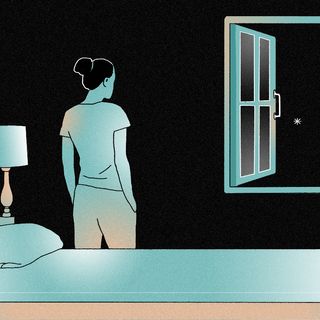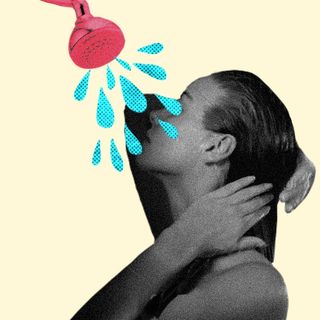
New Cannabis Research Debunks the Myth of ‘Lazy Stoners’
“Our work implies that … people who use cannabis are no more likely to lack motivation or be lazier than people who don’t.”

Pop culture is notorious for stereotyping most users of cannabis as “slothy, lazy, good-for-nothing hippie[s].” Think unforgettable fictitious personalities — from Jesse Pinkman in Breaking Bad to The Dude in The Big Lebowski — who have immortalized the stereotype that people who smoke weed are markedly sluggish. But here’s the problem: this assumption is based on… nothing.
“We’re so used to seeing ‘lazy stoners’ on our screens that we don’t stop to ask whether they’re an accurate representation of cannabis users,” said Martine Skumlien from the department of psychiatry at Cambridge University. Skumlien, along with other researchers, recently conducted a study that poked holes in the cultural myth of “lazy stoners,” saying, “Our work implies that [the myth] is in itself a lazy stereotype.”
Published in the International Journal of Neuropsychopharmacology recently, the study assessed whether cannabis users indeed scored higher in terms of “apathy” (loss of motivation) and “anhedonia” (loss of interest in or pleasure from rewards), as compared to non-users. Examining more than 200 participants, the researchers also checked if cannabis users were less willing to exert physical effort to obtain a reward — basically, yet another motivation check.
“We were surprised to see that there was really very little difference between cannabis users and non-users when it came to lack of motivation or lack of enjoyment, even among those who used cannabis every day,” Skumlien added.
Related on The Swaddle:
Cannabis Users Are Likely To Be Nicer, More Empathetic: Study
This isn’t the first time scientists have challenged — and debunked — the popular representation. A 2016 study had done the same, but it had a rather tiny dataset, including fewer than 100 people. Another study published last year — involving more than 2,000 participants — found that both frequent and light cannabis engaged in more physical activity than non-users did. It suggested the possibility that weed may actually encourage physical activity.
Yet, from Pineapple Express, Harold and Kumar, to Go Goa Gone, countless movies have led us to believe that cannabis-smokers are uninspired, unmotivated individuals. They zone out of reality to retreat into their heads, often while smoking up in dark, smoke-filled rooms. This couldn’t be further from the truth.
Usain Bolt — retired sprinter, and once upon a time, the fastest man alive — has admitted to smoking marijuana in the past. Going against the tide of popular perception, the drug didn’t prevent him from a glorious sports career. Michael Phelps — an American swimmer described as “the most successful and most decorated Olympian of all time with a total of 28 medals” — has also, reportedly, used cannabis. Last year, Forbes sarcastically captioned his picture as saying, “Michael Phelps, a typical inactive cannabis user.”
“The pot-using body is stigmatized while the athletic body is valued and celebrated. The binary that constructs the drug user as bad and the healthy athletic body as normal, even exemplary, make[s] it difficult to understand marijuana users as anything but deviant people,” notes a paper from 2012.
Related on The Swaddle:
The Inability To Experience Pleasure Is Called Anhedonia. But Why Does It Occur?
In fact, according to the present study, while both users and non-users had similar motivation scores, cannabis users actually scored lower in the test measuring anhedonia levels than non-users — suggesting they’re able to enjoy themselves better than the latter set.
However, this isn’t an endorsement of marijuana. Not only is marijuana illegal in many countries, but also, smoking, one of the ways in which marijuana is commonly consumed, is really bad for health. In addition, cannabis can also mess with other medications one may be on. And so, unregulated use — especially that of non-medical marijuana that may be laced with toxic chemicals like pesticides — isn’t the best idea.
But herein lies the problem with the “lazy stoner” stereotype: it focuses on non-existent harms, rather than discussing actual risks, which could actually dilute the relevance of public messaging around cannabis use. Case in point: the “stoner sloth” anti-drug campaign in Australia that sought to discourage cannabis use by employing the same old stereotype. It resulted in the initiative being widely mocked and parodied on the internet, while experts also pulled out citing their disapproval of the hyperbolic stereotypes.
And so, Skulkien believes: “Unfair assumptions can be stigmatizing and could get in the way of messages around harm reduction. We need to be honest and frank about what are and are not the harmful consequences of drug use.”
Devrupa Rakshit is an Associate Editor at The Swaddle. She is a lawyer by education, a poet by accident, a painter by shaukh, and autistic by birth. You can find her on Instagram @devruparakshit.
Related


What It’s Like to Live With: Chronic Sleeplessness
